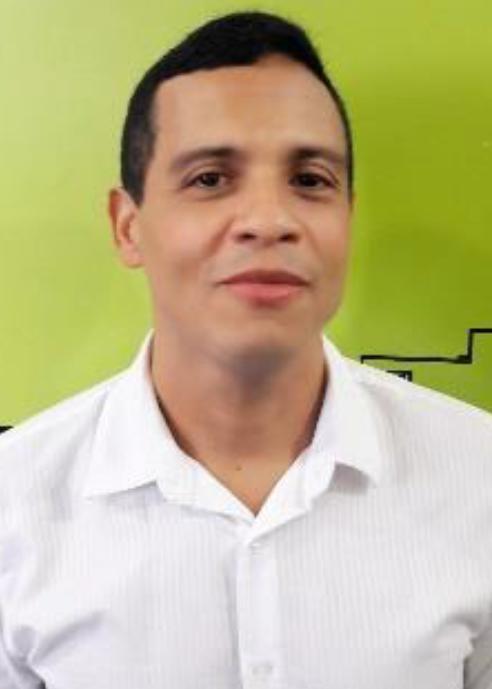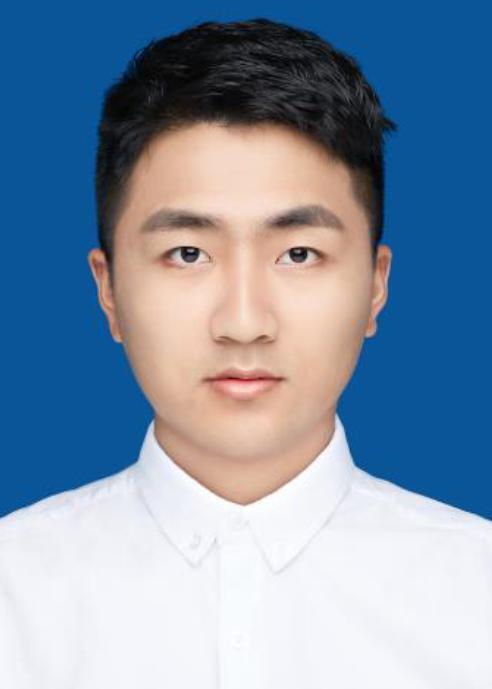Nonthermal processing (NTP) has been investigated for food applications for the purpose of product stabilization and extraction of valuable compounds, as alternative preservation processes to conventional application of thermal treatments and/or pre‐treatments (before freezing, drying), in wastewater treatments and in different applications [2]. Such technologies include electro technologies (cold plasma processing, pulsed electric fields—PEF, pulsed light—PL, e‐beam processing); pressure‐based technologies like high pressure processing—HPP (cold preservation— Pascalization), high pressure homogenization and mechanical technologies (high power ultrasound—US, hydrodynamic cavitation). Most of them have not yet reached technology readiness level (TRL), to be applied in food industry. PEF and HPP are two technologies that are already in use in food industry having TRL level of more than 7 [3].
As very important aspect of current research and future application in food industry is sustainability, it is necessary to implement Sustainable Development Goals (SDGs) in research activities. Waste, energy, economy, and environment are major pillar that need to be managed in terms of Agenda 2030 and SDGs. [5]. The three pillars of sustainability refer to environmental, economic, and social impacts of nonthermal technologies (i.e., energy balances, life cycle assessment (LCA), waste production/reduction, cost of production, impact to society) as well to set novel approach to introduce nonthermal technologies as smart systems in food industries [4]. Energy conservation is vital for the sustainable development of the food industry. Circular economy (CE) promotes an earth-friendly economic development model. Its main aim is to organise an economic activity in a closed-loop process with the regeneration processes, such as resource production-consumption-regeneration [1].
This Special issue targets the role of ultrasound technology in achieving the UN Sustainable Development Goals. Specific topics like ultrasound in food processing technologies for the valorization of agri-food by-products and agri-food waste for compounds and products with high-added value (e.g. bioactive compounds, functional compounds, production of clean energy) are reviewed. Sustainable food design and development of ultrasound assisted processes to enhance the shelf-life of perishable food products are also discussed. Food quality monitoring and total quality assessment are also very important topics in ultrasound processing. The aim should be with lowest energy and economic resources and least impact to the environment assure food quality, and positive impact to the society, in general. It is also important to apply combination of ultrasound with other technologies in wastewater treatment. Ultrasound can be efficiently used in oxidative processes/wastewater processing. The aim of this special issue is to provide an overview and focus development of ultrasound assisted processes to enhance the function and nutritional value of perishable food products and to review food processing technologies, like ultrasound in terms of green and energy saving technology, in line with sustainable development goals.
Interdisciplinary academics studying sustainable development have shown a significant deal of interest in ultrasound as a sustainable green manufacturing technology in recent years. A new chapter in the numerous uses of ultrasound in the food industry has been established by a special issue of Ultrasound Sonochemistry titled “Ultrasonic Food Processing as a Green and Sustainable Technology”.
After going through several steps, including internal review, external independent expert review, revision, and re-review, we were able to less than 25 papers from the numerous submissions for publishing in this special issue. The use of ultrasound in various fields related to green and sustainable development has been thoroughly studied and discussed in these articles. These fields include the purification, treatment, and application of materials like fish mince products, low molecular weight polysaccharides from tremella, bass, and papaya, as well as pork, cherries, and spinach juice. This special issue gathers research on dietary fiber from Dendrocalamus brandisii Munro shoots and other studies that fulfill human health demands, in addition to other popular food treatments. It is important to note that the notion derived from Tenebrio molitor larvae offers some fresh perspectives on how to combat poverty and hunger, as suggested by the United Nations 2030 Plan. It may be claimed that these accepted papers highlight the importance of ultrasonography in green processing.
Upon careful examination of the articles that were approved for publication in this special issue. Concerning time, energy, efficiency, and product quality, we are certain that ultrasonography contributes significantly to green and sustainable development. Anticipatedly, the high-energy ultrasound-generated cavitation bubbles will quicken the rate of response and enhance the product's quality following rupture. The fact that these methods are sustainable and environmentally friendly should be highlighted.
Even though several studies have demonstrated the benefits of the use of ultrasound in food processing, no clear correlation has been found. Our goal in focusing on the sustainability of ultrasound in this special issue is to draw in theme contributions about sustainable sound processing in food. This special issue contributes to the global strengthening of scientists' feeling of responsibility. We also think that sustainable development of ultrasonography will become a trend in this journal's research and foster collaboration among socially conscious scientists.
Sincere appreciation is extended by Anet Režek Jambrak, Adriano Gomes Da Cruz, and Jiahui Chen to all contributing authors and colleagues who helped with the article evaluation.
Declaration of competing interest
The authors declare that they have no known competing financial interests or personal relationships that could have appeared to influence the work reported in this paper.
Acknowledgement
Anet Režek Jambrak would like to acknowledge Croatian Science Foundation, for funding the project Digitalisation of nonthermal Extraction of proteins from plant by-products and Electroforming as output Product (IP-2022-10-2207) and this editorial belongs to the project deliverables.
Biographies

Anet Režek Jambrak, PhD is tenured professor from University of Zagreb, Faculty of Food Technology and Biotechnology, Croatia.The first position was in 2003. as a young researcher (assistant) at the Faculty of Food Technology and Biotechnology. PhD., from Faculty of Food Technology and Biotechnology of the . She obtained PhD, in 2008. Thesis: Ultrasonic effect on physical and functional properties of whey proteins. She was trained abroad at Coventry University, UK and at the University of Avignon, France. She is at the position of full professor (from 2018.) and tenured (from 2023), as well scientific advisor (permanent title) from 2017. in food engineering (biotechnical sciences). From 2019. she is head of Laboratory for sustainable development. Her field of research is nonthermal processing, advanced thermal processing, sustainability, food processing, Industry 4.0, digitalization, food chemistry, food physics etc. In the period from 2007. Anet Režek Jambrak has published over 130 significant scientific papers with citations more than 6140, (h-index 42) and author of book chapters in recognized scientific publishers like Wiley, Elsevier, Springer etc. She is editor of the book Nonthermal Processing in Agri-Food-Bio Sciences: Sustainability and Future Goals; Springer Nature Switzerland AG 2022. In the period from 2003-2023 she attended several teachings, professional and scientific workshops, training, and tutorials (thermal analysis, nonthermal processing, additive technologies etc.). She was trained in 2021 at EIT Food Executive Academy (https://www.eitfood.eu/projects/eit-food-government-executive-academy) and 2021 Algebra Mini MBA Digital training (https://www.algebra.hr/mba/about/mini-mba-digital/). She is a member of the European Union of Food Science and Technology (EFFoST) Executive Committee (from 2022). She received many prizes and awards: In 2021. she received Emerging Sustainability Leader Awardd from MDPI Sustainability Foundation; 2019. she was titled Highly Cited Researcher, among 0.1% world scientists (powered by Web of Science https://publons.com/awards/highly-cited/2019). In 2019. she received national award for Science, Parliament of the Republic of Croatia, Ministry of Science and Education, Government of the Republic of Croatia; in 2016. was awarded Young Scientist Award - International Union of Food Science and Technology (IUFOST) etc. Professor Anet Režek Jambrak was appointed Editor in Trends in Food Science and Technology, Elsevier; Assistant Editor, Journal of Food Processing and Preservation, Hindawi; Editor, Food Engineering Reviews, Springer Nature; Section Editor-in-chief (2020-2022), Processes, MDPI; and Editor-in-Chief, Journal of Food Quality, Wiley/Hindawi. She is teaching courses related to nonthermal and advanced thermal processing, food engineering, physical properties of foods, sustainability, Industry 4.0 in biotechnical sciences etc. She is a member of Global Young Academy (GYA), Young Academy of Europe (YAE); European Union of Food Science and Technology (EFFoST) and International Academy of Food Science and Technology (IAFoST). General information: e-mail: anet.rezek.jambrak@pbf.unizg.hr. (0000-0001-7676-6465) – ORCID. Important links: Highly cited researcher 2019; https://publons.com/awards/highly-cited/2019/. http://www.researchgate.net/profile/Anet_Reek_Jambrak. https://hr.linkedin.com/in/anetrezekjambrak. http://www.scopus.com/authid/detail.url?authorId=56703576700. http://scholar.google.hr/citations?user=xlCcR2gAAAAJ&hl=hr&oi=ao. https://orcid.org/0000-0001-7676-6465. 2021 Emerging Sustainability Leader Award - https://wsforum.org/

Adriano Gomes da Cruz. PhD., from Chemistry of School of the Federal University of Rio de Janeiro, Brazil.. PhD in Food Technology from the Faculty of Food Engineering. of the State University of Campinas (UNICAMP). From 2012, he is Associate Professor of the Federal Institute of Education, Science and Technology of Rio de Janeiro (IFRJ) in the Department of Food. Coordinator of the Food Processing Laboratory and Sensory Analysis Laboratory. Teaching and professional experience in Food Science and Technology, with emphasis on Dairy Science and Technology [development, stability, benefit confirmation and sensory analysis of functional dairy products (prebiotics, probiotics, synbiotics and low sodium content), microbiology, hygiene, legislation, packaging of milk and dairy products, utilization of by-products of the dairy industry, maturation and stability of cheeses, processing of consumer milk, desserts, dairy drinks, fermented milks, butter, Ice cream and whey), non-conventional technologies (ultrasound, cold plasma, ohmic heating, microwaves, high pressure)]; Quality Management in Food Industry (Quality Tools, Audits, Quality Systems [BPA, GMP, POP / PPHO, HACCP, ISO22000 Standards, FSSC 22000], Food Defense, Food Fraud, Traceability and Recall), Chemometric method applied to Food Science (PCA, HCA, PLS, Artificial neural networks, KNN, SIMCA, LDA) and Sensory and Consumer Science using traditional methods and innovative methods based in consumer perception. Adriano Gomes da Cruz has published over 150 significant scientific papers with citations more than 7500, (h-index 54) and author of book chapters in recognized scientific publishers like Wiley, Elsevier, Springer etc. He is highly cited research from 2019 until 2023. General information: Emai: adriano.cruz@ifrj.edu.br. ORCID: 0000-0002-9285-9669. Important links: https://www.webofscience.com/wos/author/record/W-1485-2017. https://scholar.google.com.br/citations?user=p93XnqYAAAAJ&hl=pt-BR&oi=ao

JiahuiChen, from College of Food Science and Technology, Nanjing Agricultural University, Nanjing. Thesis: Effect of ultrasound assisted polyphenol treatment on meat protein. He was trained abroad at University of Melbourne, Australia. His research interests include food chemistry, protein digestibility, covalent connections, food component interactions, ultrasonic processing, and protein structure, among other topics. Jiahui Chen is an author of book chapters published by Elsevier and has written several noteworthy scientific publications since 2018. In addition to winning several accolades at the national and provincial levels, he serves as a guest editor for the Journal of Ultrasonics Sonochemistry and Food Chemistry. Additionally, he has received several awards at international conferences, such as the Third International Conference on Food Nutrition and Health and the University of California, Davis's “one world, one health” international seminar. General information: e-mail: 2019208008@njau.edu.cn. (0000-0002-0742-8697) – ORCID. Scopus Author ID: 57218344325. Important links: https://orcid.org/0000-0002-0742-8697. https://www.scopus.com/authid/detail.uri?authorId=57218344325
Contributor Information
Anet Režek Jambrak, Email: anet.rezek.jambrak@pbf.unizg.hr.
Adriano Gomes Da Cruz, Email: adriano.cruz@ifrj.edu.br.
Jiahui Chen, Email: 2019208008@njau.edu.cn.
References
- 1.Arshad R.N., Abdul-Malek Z., Roobab U., Ranjha M.M.A.N., Režek Jambrak A., Qureshi M.I., Khan N., Manuel Lorenzo J., Aadil R.M. Nonthermal food processing: A step towards a circular economy to meet the sustainable development goals. Food Chem.: X. 2022;16 doi: 10.1016/J.FOCHX.2022.100516. [DOI] [PMC free article] [PubMed] [Google Scholar]
- 2.F. Chemat, M. Abert Vian, A.S. Fabiano-Tixier, M. Nutrizio, A. Režek Jambrak, P.E.S. Munekata, J.M. Lorenzo, F.J. Barba, A. Binello, G. Cravotto. A review of sustainable and intensified techniques for extraction of food and natural products. In: Green Chemistry, Vol. 22, Issue 8. Royal Society of Chemistry, 2020, pp. 2325–2353. 10.1039/c9gc03878g. [DOI]
- 3.E. Ebert, K. Aganovic. Current Technology Readiness Levels (TRL) of Nonthermal Technologies and Research Gaps for Improved Process Control and Integration into Existing Production Lines, 2022, pp. 511–540. 10.1007/978-3-030-92415-7_15. [DOI]
- 4.Jambrak A.R., Nutrizio M., Djekić I., Pleslić S., Chemat F. Internet of Nonthermal Food Processing Technologies (IoNTP): food Industry 4.0 and Sustainability. Appl. Sci. 2021;11(2):686. doi: 10.3390/APP11020686. [DOI] [Google Scholar]
- 5.Mancini L., Vidal-Legaz B., Vizzarri M., Wittmer D., Grassi G., Pennington D.W. Mapping the role of raw materials in sustainable development goals. Publicat. Office Eur. Union. 2019 doi: 10.2760/026725. [DOI] [Google Scholar]


